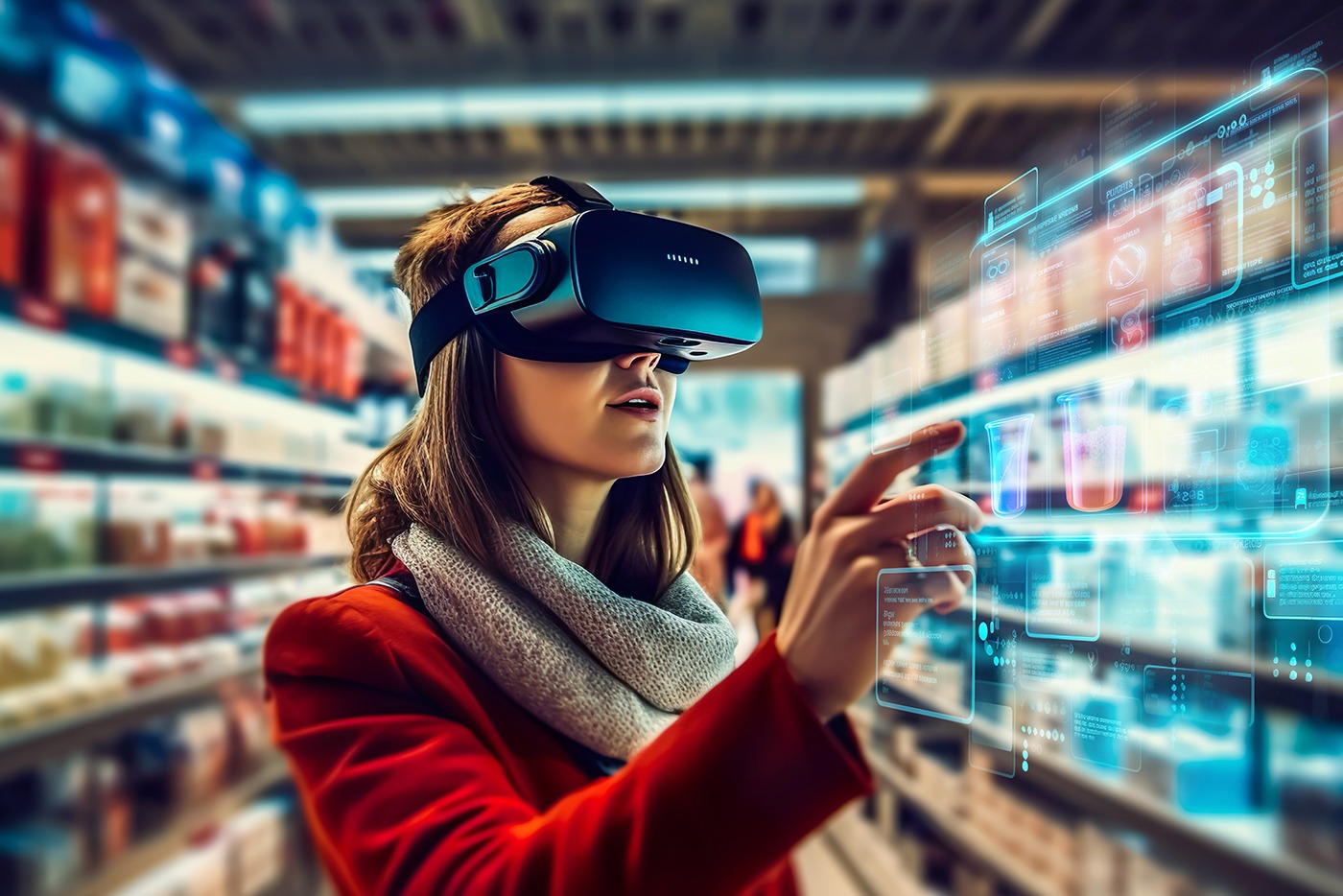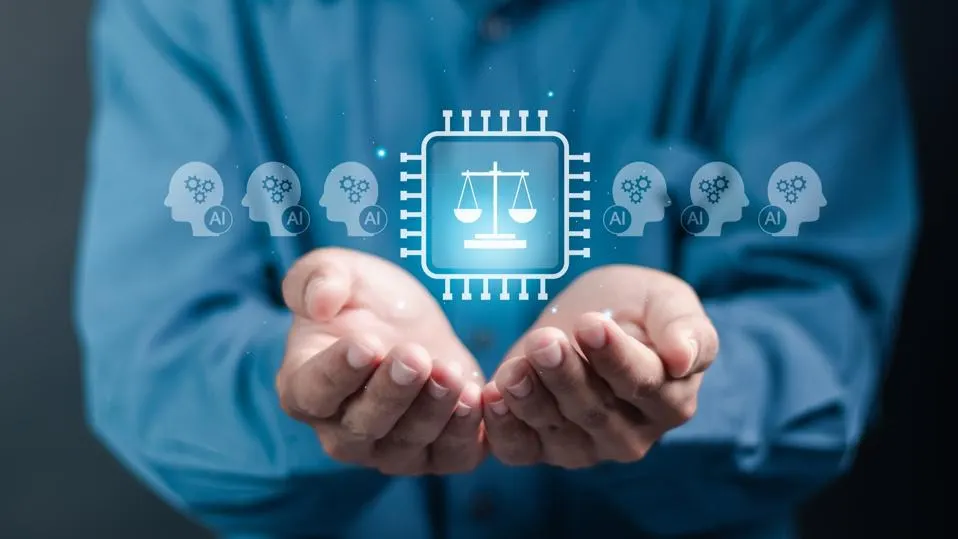From Digital Gucci To Blockchain Supply Chains: Retail’s Web3 Revolution
16 November 2023
From the early days of online shopping to the rise of influencer marketing, there’s no doubt the internet has revolutionized how we shop and make purchasing decisions. Now that we’re entering the next phase of the internet–driven by the metaverse, blockchain and NFTs – there will be new opportunities for fashion brands and retailers to connect with their audiences and sell their wares.

Here are three opportunities that retail brands would be crazy to ignore.
Opportunity 1: Creating Digital-Only Products
A trend that started with NFT collectibles and purchasing in-game accessories is now spreading to the retail sector. Especially for fashion brands, the metaverse and web3 will offer a whole new way to fulfill the desires of customers – customers who, crucially, will spend more of their time in virtual worlds. Given that many of us use clothing as a way to show our individuality and personality in the physical world, why wouldn’t we want to do the same with our digital selves?
Several brands have already created digital-only products. Balenciaga created a clothing line in the wildly popular Fortnite game. Gucci created a luxury destination called Gucci Garden on the Roblox metaverse platform – where, incidentally, it sold a single virtual bag for over $4,000. Burberry created a line of NFT creations for the Blankos Block Party universe, which included armbands, jetpacks and pool shoes – a collection that netted almost $400,000. And Dolce & Gabbana sold a nine-piece collection on digital luxury marketplace UNXD for a staggering $5.7 million.
Clearly, high-end brands have been leading the way with this trend. But as with most things in fashion, trends that start with designer labels generally filter down to high-street brands. Therefore, we can certainly expect to see more and more brands, all along the pricing spectrum, release digital-only products – whether those products are for sale or purely to create marketing buzz. As an example of the latter, Coca-Cola recently launched a virtual drink (called Coca-Cola Zero Sugar Byte) within the Fortnite game.
When you think about it, there are very real advantages to creating digital products. Designers can create free from the limitations of physical products. Production costs are minimal, profit margins are huge, and, unlike physical products, you never have to worry about carrying too much stock. Meanwhile, as customers, we can have our digital avatars wear whatever we want without worrying about what's practical, comfortable, or flattering.
I've talked a lot about fashion, but rest assured, the digital product trend is applicable to all sorts of brands. In the metaverse, we’ll be able to buy digital versions of practically anything – clothes, obviously, but also virtual furniture (for our virtual houses), a virtual car to cruise around the metaverse in, virtual pets … and even virtual jewelry.
Opportunity 2: Setting Up Shop In The Metaverse
Brands are already beginning to move beyond the static retail websites of old and create immersive virtual shopping and brand destinations within the metaverse. Nike is a real leader when it comes to building a virtual presence in the metaverse, having set up its own virtual world called Nikeland in the Roblox platform. Inspired by Nike’s real-life Oregon headquarters, Nikeland features Nike buildings and arenas where Nike lovers can take part in games like tag and dodgeball. But there's also a virtual showroom of Nike products, spanning the latest digital products and digital versions of Nike classics, like the Air Force 1 sneakers. In other words, Nikeland is part game, part brand experience, and part showroom. It's a cool glimpse of what virtual stores may look like in the future – moving beyond just straight-up digital replicas of physical stores to incorporate immersive, fun activities. Compared to this, the current online retail experience looks pretty boring.
Other brands to jump on the virtual experience trend include Forever 21, Selfridges, and beauty brand Charlotte Tilbury. Walmart has also created metaverse experiences – like Walmart Land in Roblox, which features an obstacle course of oversized Walmart products as well as a virtual dressing room featuring exclusive clothing lines. Walmart Land also hosted a virtual concert featuring Madison Beer and other artists.
Opportunity 3: Adopting Blockchain Technology
Blockchain has enormous potential to disrupt the retail industry, particularly when it comes to the supply chain. Blockchain can bring some much-needed transparency to the movement and exchange of goods, providing a secure, complete record of where products and materials have come from.
French retailer Carrefour is already using blockchain to track meat, dairy and fruit from farm to store. Customers can simply scan a QR code in-store and get information on where the product was harvested (and when) and whether pesticides were used in its production. As more and more consumers think carefully about the products they buy and the impact of their purchasing decisions, it’s clear that blockchain’s ability to provide a complete, traceable record of a product’s lifecycle can help to promote consumer confidence.
Speaking of confidence, for luxury brands, blockchain-based records can also provide reassurance that the item a customer is buying is the genuine article and not a counterfeit knock-off. Combine this with automatically executing smart contracts, and there’s even the opportunity for brands to take a slice of the pie when their products are resold in the future. (Something that I’m sure would appeal to luxury brands.)
And for smaller companies, the decentralized nature of blockchain means brands will be better able to connect directly with customers without having to go through intermediaries (trying to get your products stocked in a Target, for instance). After all, blockchain excels at facilitating secure financial transactions between two parties without needing a third party to manage the transaction. That alone could be a game-changer for many retail brands.
Related Articles
The UK’s Bold AI Plan: A Blueprint For Leading The Future Of Technology
By now, “smart” versions exist of just about every home appliance, gadget and gizmos we can think of. However, manufacturers continue[...]
Will AI Solve The World’s Inequality Problem – Or Make It Worse?
We are standing on the cusp of a new technological revolution. AI is increasingly permeating every aspect of our lives, with intelligent machines transforming the way we live and work.[...]
How You Become Irreplaceable In The Age Of AI
In a world where artificial intelligence is rapidly advancing, many of us are left wondering: Will AI take our jobs?[...]
Why Apple Intelligence Sets A New Gold Standard For AI Privacy
In the rapidly evolving world of artificial intelligence, privacy concerns have become a hot-button issue.[...]
Can Your Device Run Apple Intelligence? What You Need To Know
Apple's announcement of Apple Intelligence has sent waves of excitement through the tech world.[...]
10 Amazing Things You Can Do With Apple Intelligence On Your IPhone
Apple Intelligence is poised to revolutionize the iPhone experience, offering a suite of AI-powered tools that promise to make your digital life easier, more productive, and more creative.[...]
Sign up to Stay in Touch!
Bernard Marr is a world-renowned futurist, influencer and thought leader in the fields of business and technology, with a passion for using technology for the good of humanity.
He is a best-selling author of over 20 books, writes a regular column for Forbes and advises and coaches many of the world’s best-known organisations.
He has a combined following of 4 million people across his social media channels and newsletters and was ranked by LinkedIn as one of the top 5 business influencers in the world.
Bernard’s latest book is ‘Generative AI in Practice’.










Social Media